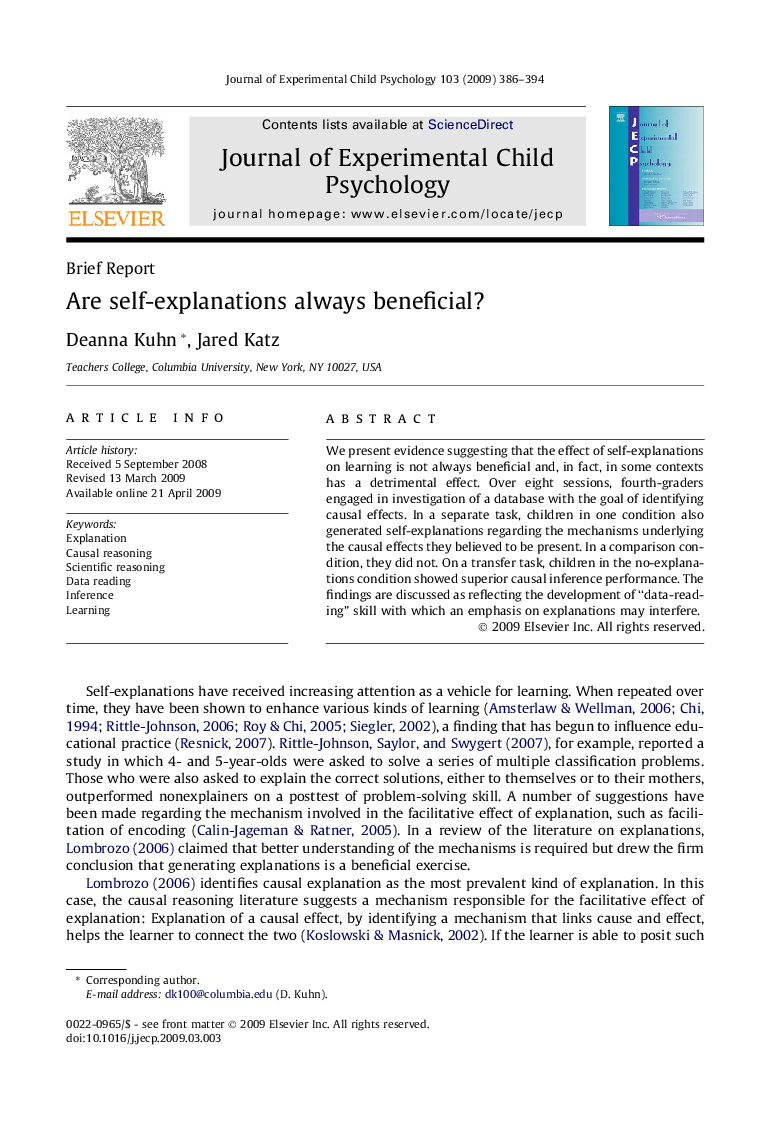| Article ID | Journal | Published Year | Pages | File Type |
|---|---|---|---|---|
| 918599 | Journal of Experimental Child Psychology | 2009 | 9 Pages |
Abstract
We present evidence suggesting that the effect of self-explanations on learning is not always beneficial and, in fact, in some contexts has a detrimental effect. Over eight sessions, fourth-graders engaged in investigation of a database with the goal of identifying causal effects. In a separate task, children in one condition also generated self-explanations regarding the mechanisms underlying the causal effects they believed to be present. In a comparison condition, they did not. On a transfer task, children in the no-explanations condition showed superior causal inference performance. The findings are discussed as reflecting the development of “data-reading” skill with which an emphasis on explanations may interfere.
Related Topics
Social Sciences and Humanities
Psychology
Developmental and Educational Psychology
Authors
Deanna Kuhn, Jared Katz,
